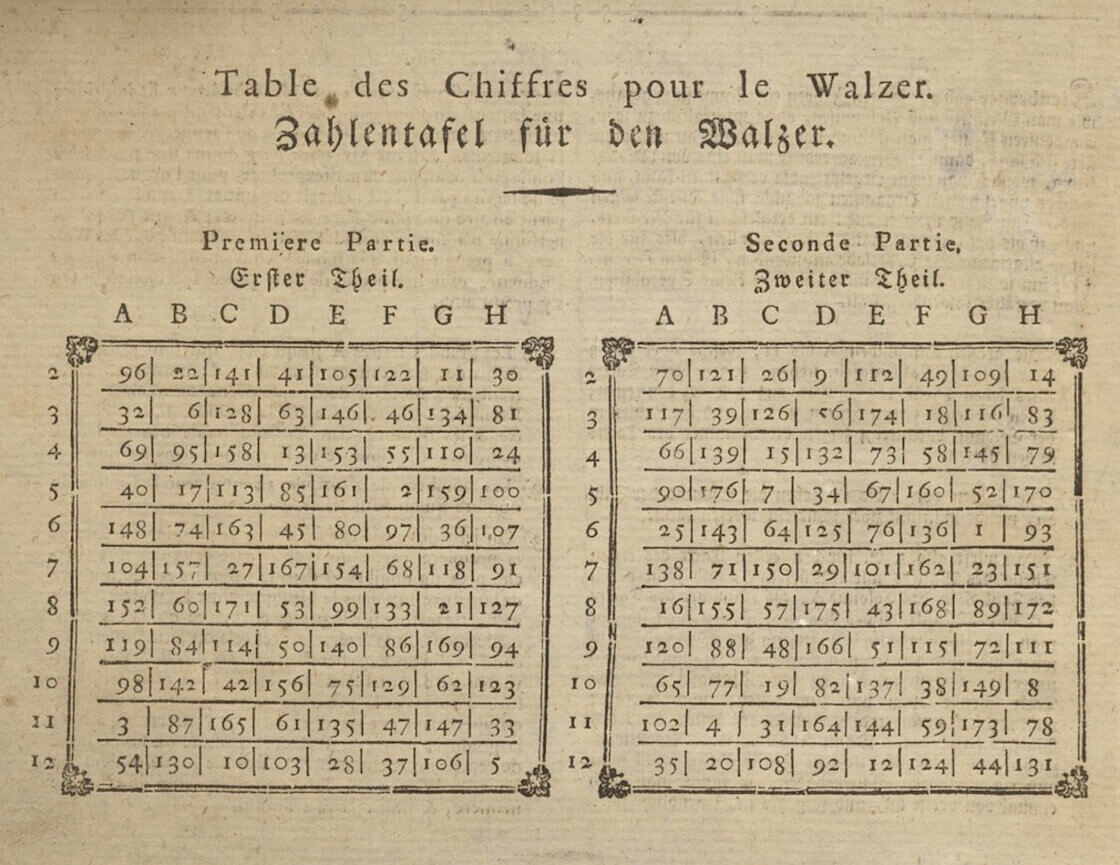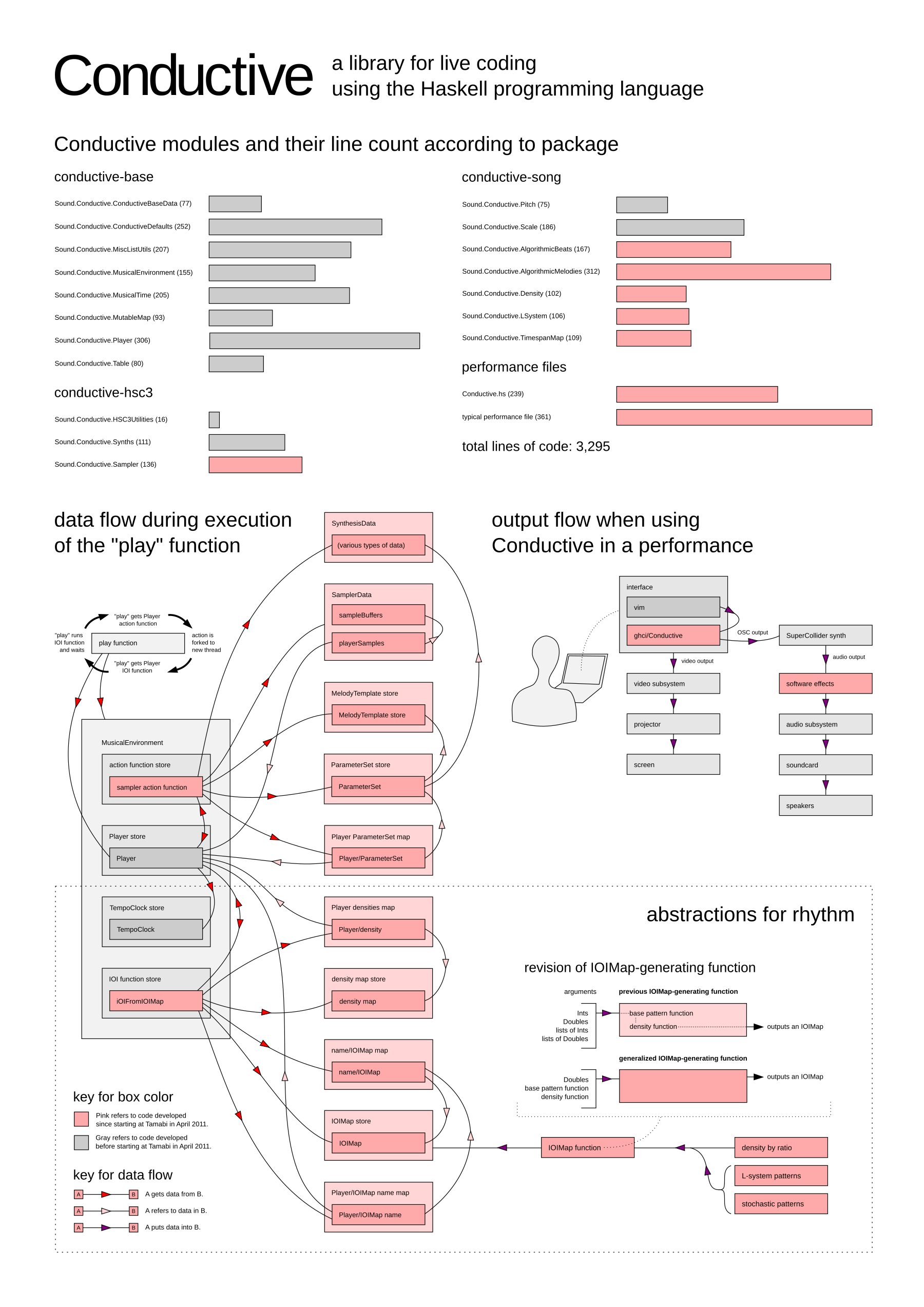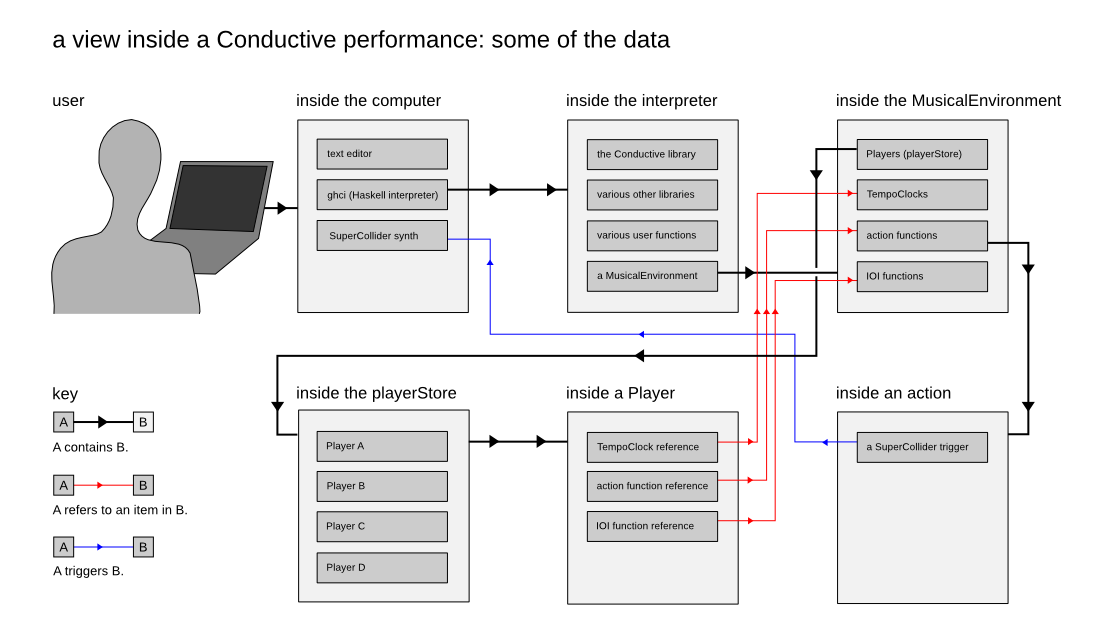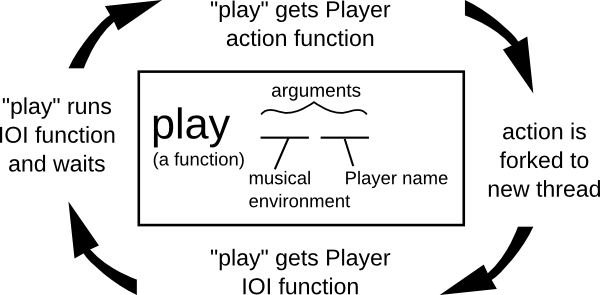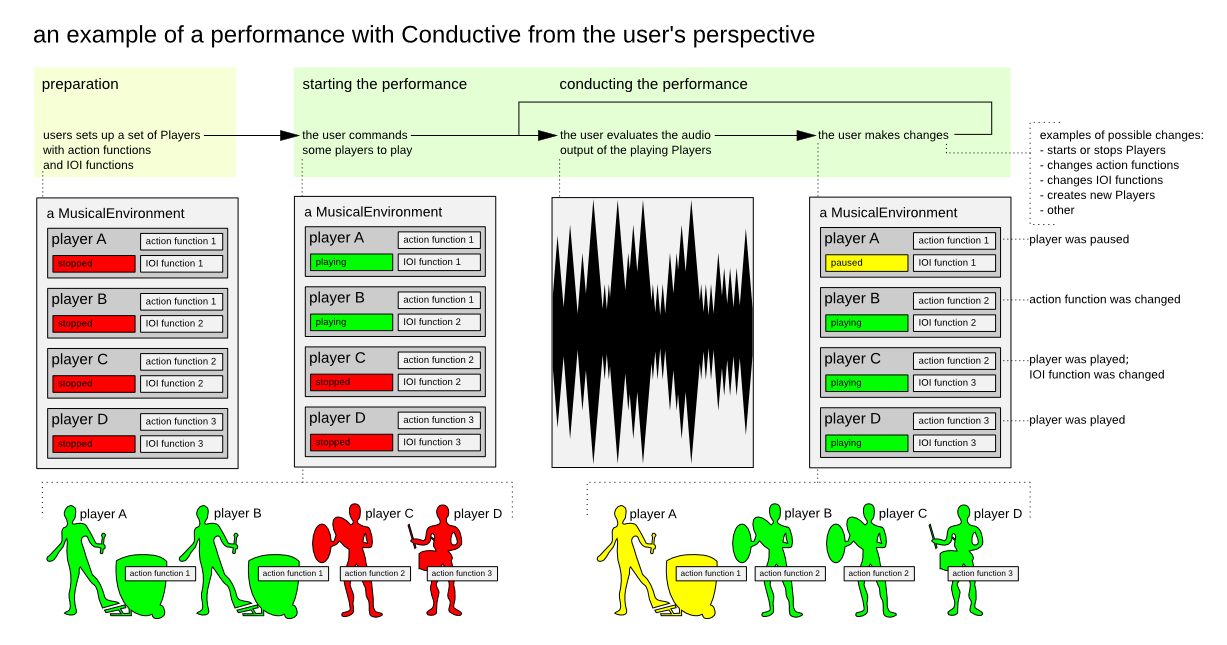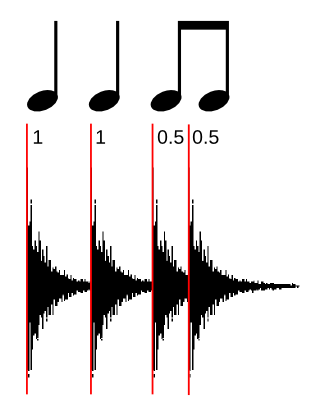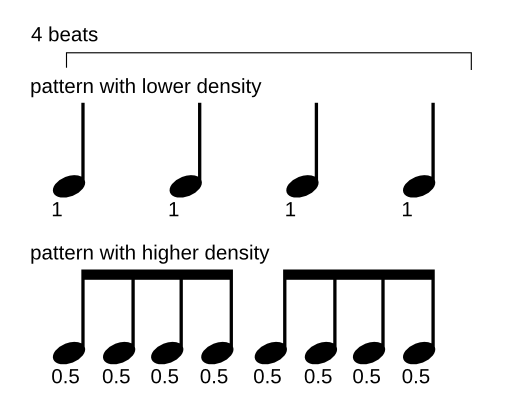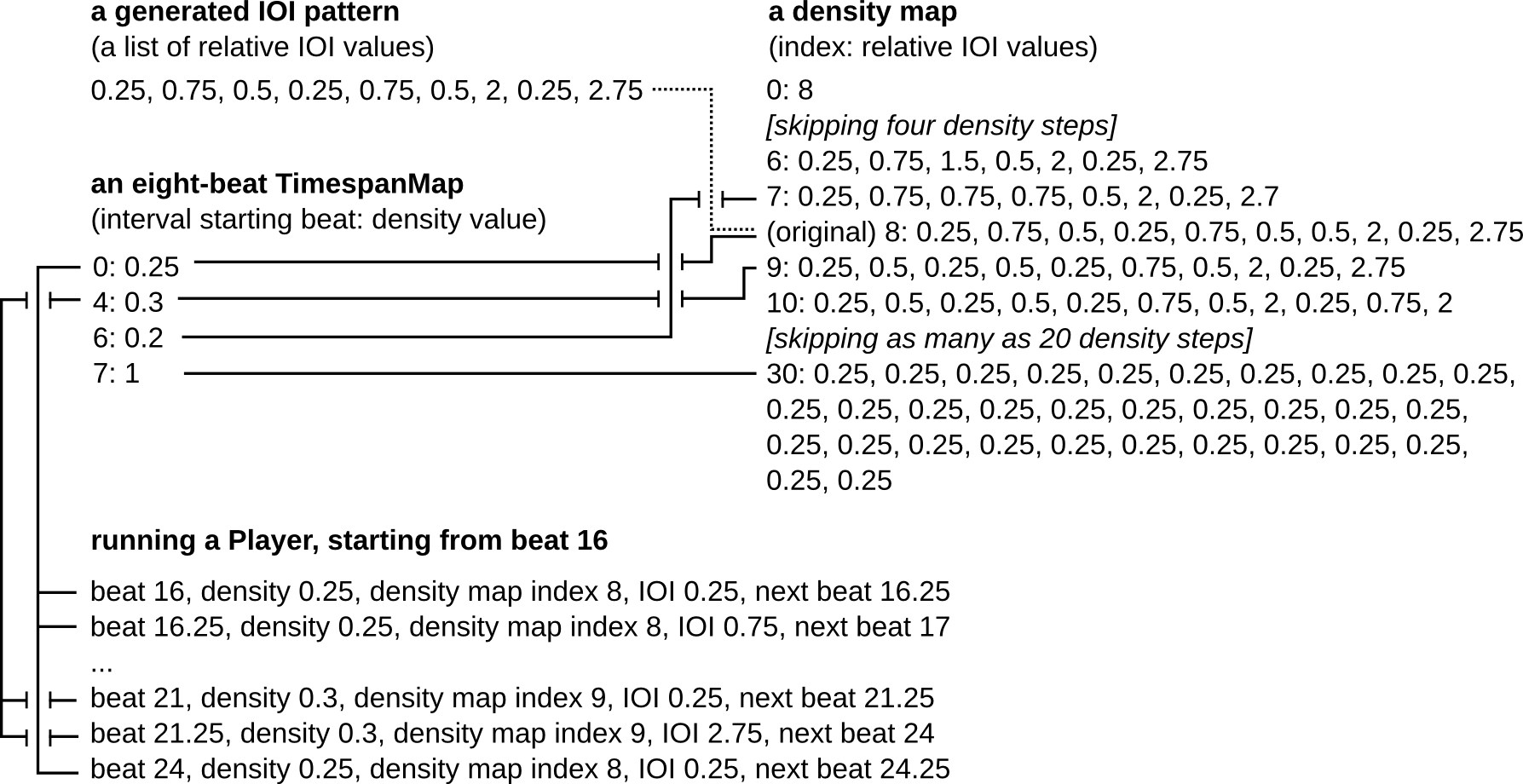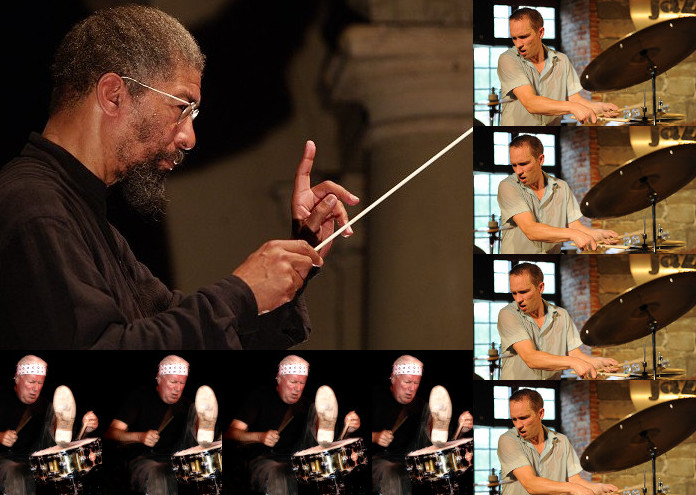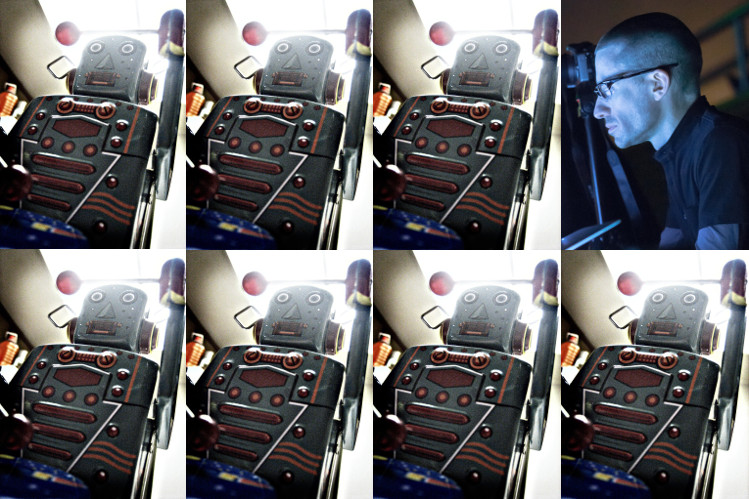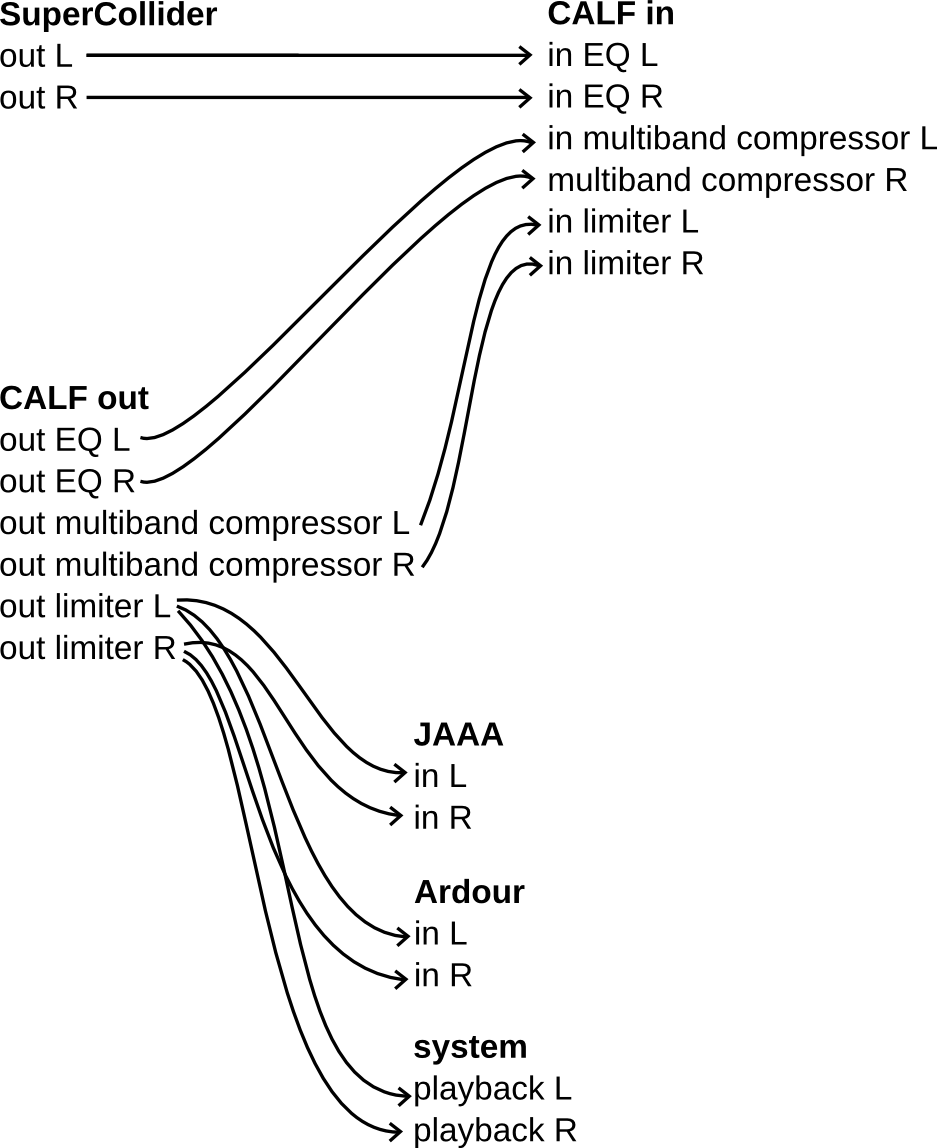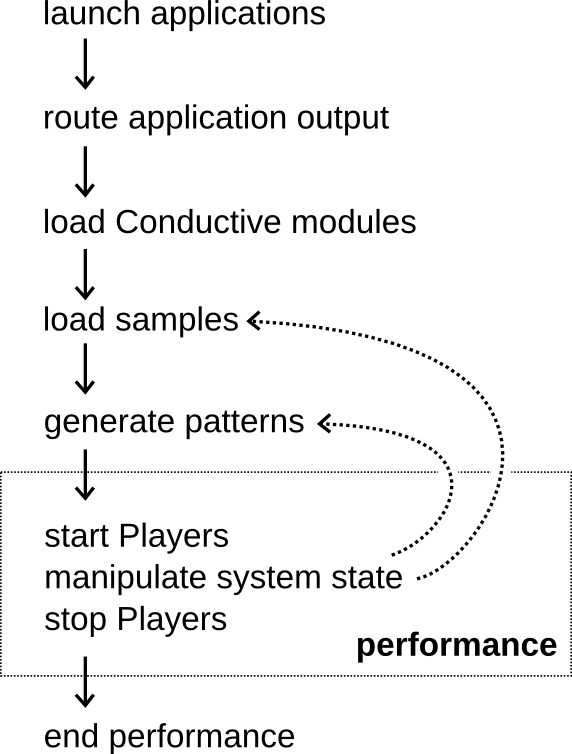HSE 02, Nov. 13, 2021
second lecture: layers of algorithmic processes toward an illusion of artificial creativity and how to interact with them
outline
(based on time: history, always (normative), momentary time, short time, medium time)
- condensed history of algorithmic composition
- a principle for conducting your operations
- sound (frequencies of audio, ha)
- sequence (phrase, at least it starts with an f sound)
- structure (form)
- appendices 1 (other advice) and 2 (future)
1. history
gleb - overview of algorithmic music (musicians, techniques, concepts)
christopher ariza's www.algorithmic.net, Michael Nyman's Experimental Music (book), Oxford Handbook of Algorithmic Music, etc
musical dice games
https://www.youtube.com/watch?v=fs7wpfIKFxk
serialism
duchamp, cage, and indeterminacy
analog synthesis (east and west coast schools, subotnick etc)
algorithmic composition
AI, expert systems
machine learning is just an extension of neural nets
a note: a lot of algorithmic stuff for me is hugely inspiring, but i don't like it sensually
at the same time, so much of what we listen to involves the use of computer tools, it's hard to say where the line for “algorithmic composition” is. 50 percent? how do you determine that?
it all becomes computer-aided creativity
still, we'd be likely to agree that autechre is close to algorithmic music, and something just post-processed on a DAW like a recording of an acoustic guitar, is not there aren't many composers using top-down algorithms to produce their music, which is where my interest lies
i think lots of algorithmic composers are good at algorithms and not so good at composing!
algorithmic ones (lots of electroacoustic stuff bores me, not dynamic enough, feels like it lacks compelling compositional direction, and i also love percussion)
- autechre
- mark fell
- shelly knotts
- kindohm (mike hodnick)
- live coding scene
- morton subotnick
- richard devine
David Cope, Experiments in Musical Intelligence, https://www.youtube.com/watch?v=CWDDqxNx5ug&list=OLAK5uy_k2oYlmC7KjxgBBASl0rTqYPy1824GePo0
“… top-down approaches… produce more elegant results than linear or note-by-note processes.”
2. principle
“[coarse everyday reality is composed of subatomic indeterminant parts]” Dr. Murray Gell-Mann on Thinking Aloud speaking on quantum theory https://www.youtube.com/watch?v=Hvo6BciUrfQ
Dr. Murray Gell-Mann https://en.wikipedia.org/wiki/Murray_Gell-Mann
artificial creativity - an artificially created agent displaying characteristics of original thought
real creativity is human, and the AI is simply a tool
intdeterminacy, john cage, chance operations, from duchamp
chance operations on parameters of determinant systems complex coherent results
stuff that inspires me sensually
- autechre
- mark fell
- bernard parmegiani (must be played at high volume)
- De Natura Sonorum https://www.youtube.com/watch?v=c_JHjUFfOs8
- Violostries https://www.youtube.com/watch?v=3XEUZ3aDwU4
- 90s drum and bass
- pan sonic
- fis
- jeff mills
- basic channel
- 90s east coast hiphop
- venetian snares
3. overview of some types of generation of sounds
- additive
- subtractive
- FM/phase modulation
- sample-based
- wavetable
- vector
- spectral
- vocoding
- karplus-strong
- physical modeling
- granular
- wavelet
- waveguide
- various destructive processes
in SuperCollider, UGens
curtis roads books
Synth Secrets series in Sound on Sound
advanced algorithmic sound design
- evosynth (yee-king) http://www.yeeking.net/evosynth/ and http://www.yeeking.net/evosynth/
- alo alik has a conceptually related thing built for supercollider
generating complex timbres
warping techniques (modifying samples)
my system
- synthesis techniques
- convolution with strange impulses
- filters with envelopes
- vocoders with non-voice inputs and weird carriers
- feedback systems (feeback of audio, feedback of control)
- modulation of multiple parameters
- cutting up sounds and rearranging them non-chronologically
- generation of sample sets
- record everything
- don't worry about mistakes
- not all sounds will be gold, but it doesn't matter
- generation of sample patterns
4. overview of some types of generation of sequences
- serial techniques
- randomness
- cellular automata
- genetic algorithms
- lsystems
- machine learning (dadabots, romantic piano)
“All the generated pieces lacked the extent of overall melodic progression or global structure of the original piece” Anna K. Yanchenko, Sayan Mukherjee, https://arxiv.org/pdf/1708.03822.pdf
in SuperCollider, Patterns library, other
my system
- generate rhythmic phrase
- stochastic
- lsystem
- euclidean
- euclidean patterns in supercollider https://github.com/supercollider-quarks/Bjorklund
- cropped/looped euclidian
- generate variations at different densities
- how density tables work
- increase density algorithm
- decrease density algorithm
- assign rhythm patterns to Players
- generate paths through those tables
- density table path patterns (sum of Player, style, global)
- generate sample patterns (to be played by Players)
- agents to change processes (Conductors)
- change playing Player
- change rhythm pattern
- change density table pattern
- change sample pattern
- agents to change the agents (also Conductors)
- start and stop other Conductors, change Conductor parameters
5. overview of some types of interaction
olga - i have lots of struggle with live, i want to control everything, i need some freedom, how to control the parameters
“God, grant me the serenity to accept the things I cannot change, courage to change the things I can, and wisdom to know the difference.” Serenity Prayer, Reinhold Niebuhr, https://en.wikipedia.org/wiki/Serenity_Prayer
in SuperCollider, you build it, live code it
- my system interaction = relinquishing control to agents
- make one operation map to several subsystems
- remember what cope says: top-down rather than note-by-note; let the indeterminancy speak
- live coding! interaction with symbol rather than physical gesture
- some things that gesture is good for that i'd like to return to
appendix 1: other practical advice on preparing a big live set
top-down preparation:
- how long are you going to perform?
- how long can you listen to one system state before becoming bored?
- calculate how many states you need
- make each state more interesting if you cannot prepare enough states
live mastering effects
make your system robust so that it handles failure easily
make your system easy to set up and tear down. i tend to fail at this! current working area
appendix 2: the future:
more top-down algorithms
Herremans et al: “These high-level goals and the long-term structure have been the focus of recent development in automatic music generation, a trend that will persist into the near future…” A Functional Taxonomy of Music Generation Systems (2017)
algorithmically produced timbres like alo alik's or yee-king
algorithms to produce surprising algorithms
conclusion
my papers discussing aspects of Conductive
- 2011. “An Interface for Realtime Music Using Interpreted Haskell.” In Proceedings of LAC 2011. Maynooth, Ireland. http://lac.linuxaudio.org/2011/papers/35.pdf
- 2013. “An Approach to Live Algorithmic Composition using Conductive.” In Proceedings of LAC 2013. Graz, Austria. http://lac.linuxaudio.org/2013/papers/49.pdf
- 2014. “Experimenting with a Generalized Rhythmic Density Function for Live Coding.” In Proceedings of LAC 2014. Karlsruhe, Germany. http://lac.linuxaudio.org/2014/papers/38.pdf
discussion, questions
katya:
so we need more control to construct “interesting something” which actually maybe not organic (not familiar for our audible nature and perception? In this case, in my oppinion, this approach can be comparable with the process of competition, where a man (musician, creatore, power holder, human) is trying to outdo himself (kinda sport or capitalist race).
And i also think about super control (profession control) over the sound that is to be heard by the audience. Another question is about the responsibility on “programming” of the recipient perception.
it would be interesting to analyze what was happening with perception and what were the consequences at the time of the introduction of harmonic music as a norm with what the music constructed by the algorithm now offers. Where does it shift our perception of reality?
Maybe you know examples of inclusive work with algorithmic music? for example, artists who are creating algoromitric compositions for hard-of-hearing persons or deaf people?
regarding deaf people, anny is a deaf live coder! https://www.leftlion.co.uk/read/2017/january/talking-algorave-with-notts-based-electronic-music-maker-anny/
which frequency:
Renick, I have a question about how you organise the whole live set. Is it more like different “tracks” with their own samples and algorithms, which are then mixed in generative way. Or is it more like a head algorithm that has its own structural path and that picks certain samples or code pieces, where they are needed.
